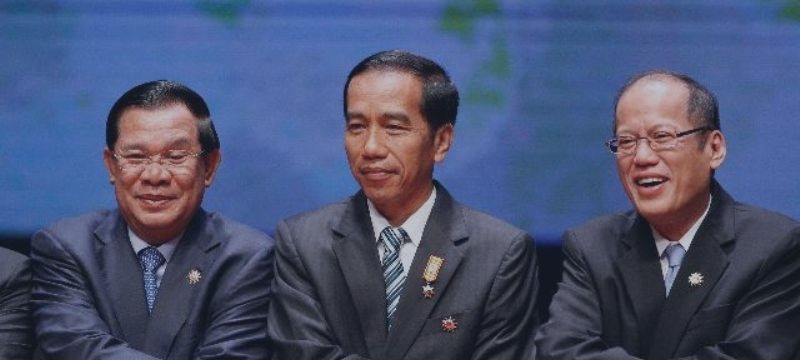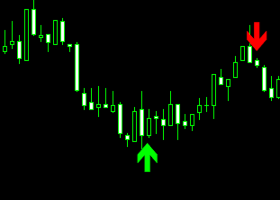In mid 2015, I talked with eight C-level administrators at driving remote multinationals as a feature of a KPMG supported report investigating the standpoint for multinationals (MNCs) in ASEAN. What did they need to say?
It's anything but difficult to get energized by the ASEAN opportunity. The area's $2,460 billion economy and 600 million customers rightly catch the world's consideration. The possibility of a solitary business with the landing of the ASEAN Economic Community (AEC) in the not so distant future makes the story significantly all the more convincing.
In any case, feature figures additionally camouflage the area's many-sided quality. It's an open door spread over 10 nations; livelihoods per capita can go from only $1,600 in Laos to $56,000 in Singapore; single urban areas, for example, Bangkok with its 10 million tenants have bigger populaces than Lao's 6 million.
Furthermore, that is the reason it's so critical to comprehend what CEOs from driving organizations, for example, Caterpillar, DHL, Shell, and HP are considering. It's one thing to get energized by the numbers, it's another to effectively execute procedure.
Restriction is the path forward
Most multinationals have a solitary China system, however what about a solitary ASEAN procedure? Maybe as anyone might expect, CEOs are more keen on discussing the need to restrict their organizations in light of quickly developing however progressively limited markets, particularly as neighborhood rivalry develops in force.
In defending their reasoning, CEOs talk most as often as possible about the requirement for a company's mastery to sit at the nation level with a specific end goal to react quickly to changes in the neighborhood market, particularly as circumstances in single nations develop. At the end of the day, what meets expectations in Indonesia may not be effortlessly repeated in Thailand.
This recommends that multinationals are more prone to limit product offerings, however hold territorial useful lines, for example, HR and IT, where there are more noteworthy chances to share best practice around the area. To this end, Singapore remains the locale's useful central command.
The AEC looks great on paper, yet…
The thought of a solitary business sector proportional to the extent of Brazil where merchandise, capital, and work stream openly is industrially convincing. The issue is that it's precarious to actualize. What do CEOs think? While for the most part positive towards the AEC's objectives, most are practical about what it implies on the ground.
The key point is that the AEC is an accord based assention. To put it plainly, governments generally just need to execute the consent to the best of their capacity. Keeping in mind CEOs acclaim the fall in duty boundaries they at the same time stress over steady non-tax obstructions.
Most are likewise cynical on the possibilities of free work development. Truth be told, numerous contend that work regulations are fixing, not facilitating, particularly for semi-gifted laborers. However, this makes inefficiencies as organizations must set up master groups in every nation.
Take the illustration of Vietnam where one CEO noted there are great welders. By differentiation, it's hard to discover better than average welders in Indonesia, in spite of the fact that the nation has great mechanical engineers. In any case, while in the EU you may move a Polish welder to work in Manchester, that is much harder to do in ASEAN.
China's shadow poses a potential threat
There's probably China remains the district's business monster; the nation's GDP is extending at a rate that is equal to including an Indonesia-sized economy every year to its yield. However, China is likewise no more shoddy and worldwide purchasers are progressively sourcing from nations, for example, Cambodia and Vietnam.
But at the same time it's more than a straightforward substitution story. One of the CEO's met for the report noticed how the firm has pointedly decreased the quantity of its China-based representatives even as it includes the Philippines, however that ASEAN's tight work regulations and mechanization of China's manufacturing plants entangles his choice.
Shouldn't something be said about the danger from 'China Inc.'? Until further notice, CEOs recommend Chinese organizations are not yet genuine contenders; Korean and Japanese firms, by complexity, still overwhelm. Also, where there is more grounded movement, it has a tendency to be Chinese development organizations building base in low-wage nations.
The district's new champions
In my discussions, CEOs were in the interim unmistakably mindful that tomorrow's rivals are well on the way to be nearby. They are most inspired by the velocity at which agile nearby contenders, particularly family-claimed organizations, are reacting to quick evolving markets.
What's less clear is whether nearby contenders will be territorial contenders. Chiefs contend that a select gathering Minister Hun Sen, Indonesia's President Joko Widodo, and Philippine's President Benigno Aquino III join their hands amid the opening function of the 26th ASEAN Summit in Kuala Lumpur, Malaysia, on Monday, April 27, 2015. (AP Photo/Joshua Paul)
of driving nearby organizations are now very much progressed, and, actually, more centered around worldwide open doors, for example, CP Group's interests in Europe, or Indorama's acquisitions in China.
Then again, an extensive offer of nearby organizations is as yet battling. Without a doubt, numerous met for the report noticed an absence of mindfulness among medium sized organizations about circumstances somewhere else in ASEAN. Numerous stick up close and personal markets where organizations trust they have the most grounded game changer.
The upshot is that multinationals will appreciate higher obstructions to passage in ASEAN in respect to China, as they benefit as much as possible from their capacity to work crosswise over national limits and still divided markets. Be that as it may, they will even now need to arrange and execute methodology in an inexorably unverifiable and unstable environment.
From left to right, Cambodia's Prime Minister Hun Sen, Indonesia's President Joko Widodo, and Philippine's President Benigno Aquino III join their hands amid the opening service of the 26th ASEAN Summit in Kuala Lumpur, Malaysia, on Monday, April 27, 2015 https://www.mql5.com/en/signals/120434#!tab=history
It's anything but difficult to get energized by the ASEAN opportunity. The area's $2,460 billion economy and 600 million customers rightly catch the world's consideration. The possibility of a solitary business with the landing of the ASEAN Economic Community (AEC) in the not so distant future makes the story significantly all the more convincing.
In any case, feature figures additionally camouflage the area's many-sided quality. It's an open door spread over 10 nations; livelihoods per capita can go from only $1,600 in Laos to $56,000 in Singapore; single urban areas, for example, Bangkok with its 10 million tenants have bigger populaces than Lao's 6 million.
Furthermore, that is the reason it's so critical to comprehend what CEOs from driving organizations, for example, Caterpillar, DHL, Shell, and HP are considering. It's one thing to get energized by the numbers, it's another to effectively execute procedure.
Restriction is the path forward
Most multinationals have a solitary China system, however what about a solitary ASEAN procedure? Maybe as anyone might expect, CEOs are more keen on discussing the need to restrict their organizations in light of quickly developing however progressively limited markets, particularly as neighborhood rivalry develops in force.
In defending their reasoning, CEOs talk most as often as possible about the requirement for a company's mastery to sit at the nation level with a specific end goal to react quickly to changes in the neighborhood market, particularly as circumstances in single nations develop. At the end of the day, what meets expectations in Indonesia may not be effortlessly repeated in Thailand.
This recommends that multinationals are more prone to limit product offerings, however hold territorial useful lines, for example, HR and IT, where there are more noteworthy chances to share best practice around the area. To this end, Singapore remains the locale's useful central command.
The AEC looks great on paper, yet…
The thought of a solitary business sector proportional to the extent of Brazil where merchandise, capital, and work stream openly is industrially convincing. The issue is that it's precarious to actualize. What do CEOs think? While for the most part positive towards the AEC's objectives, most are practical about what it implies on the ground.
The key point is that the AEC is an accord based assention. To put it plainly, governments generally just need to execute the consent to the best of their capacity. Keeping in mind CEOs acclaim the fall in duty boundaries they at the same time stress over steady non-tax obstructions.
Most are likewise cynical on the possibilities of free work development. Truth be told, numerous contend that work regulations are fixing, not facilitating, particularly for semi-gifted laborers. However, this makes inefficiencies as organizations must set up master groups in every nation.
Take the illustration of Vietnam where one CEO noted there are great welders. By differentiation, it's hard to discover better than average welders in Indonesia, in spite of the fact that the nation has great mechanical engineers. In any case, while in the EU you may move a Polish welder to work in Manchester, that is much harder to do in ASEAN.
China's shadow poses a potential threat
There's probably China remains the district's business monster; the nation's GDP is extending at a rate that is equal to including an Indonesia-sized economy every year to its yield. However, China is likewise no more shoddy and worldwide purchasers are progressively sourcing from nations, for example, Cambodia and Vietnam.
But at the same time it's more than a straightforward substitution story. One of the CEO's met for the report noticed how the firm has pointedly decreased the quantity of its China-based representatives even as it includes the Philippines, however that ASEAN's tight work regulations and mechanization of China's manufacturing plants entangles his choice.
Shouldn't something be said about the danger from 'China Inc.'? Until further notice, CEOs recommend Chinese organizations are not yet genuine contenders; Korean and Japanese firms, by complexity, still overwhelm. Also, where there is more grounded movement, it has a tendency to be Chinese development organizations building base in low-wage nations.
The district's new champions
In my discussions, CEOs were in the interim unmistakably mindful that tomorrow's rivals are well on the way to be nearby. They are most inspired by the velocity at which agile nearby contenders, particularly family-claimed organizations, are reacting to quick evolving markets.
What's less clear is whether nearby contenders will be territorial contenders. Chiefs contend that a select gathering Minister Hun Sen, Indonesia's President Joko Widodo, and Philippine's President Benigno Aquino III join their hands amid the opening function of the 26th ASEAN Summit in Kuala Lumpur, Malaysia, on Monday, April 27, 2015. (AP Photo/Joshua Paul)
of driving nearby organizations are now very much progressed, and, actually, more centered around worldwide open doors, for example, CP Group's interests in Europe, or Indorama's acquisitions in China.
Then again, an extensive offer of nearby organizations is as yet battling. Without a doubt, numerous met for the report noticed an absence of mindfulness among medium sized organizations about circumstances somewhere else in ASEAN. Numerous stick up close and personal markets where organizations trust they have the most grounded game changer.
The upshot is that multinationals will appreciate higher obstructions to passage in ASEAN in respect to China, as they benefit as much as possible from their capacity to work crosswise over national limits and still divided markets. Be that as it may, they will even now need to arrange and execute methodology in an inexorably unverifiable and unstable environment.
From left to right, Cambodia's Prime Minister Hun Sen, Indonesia's President Joko Widodo, and Philippine's President Benigno Aquino III join their hands amid the opening service of the 26th ASEAN Summit in Kuala Lumpur, Malaysia, on Monday, April 27, 2015 https://www.mql5.com/en/signals/120434#!tab=history



